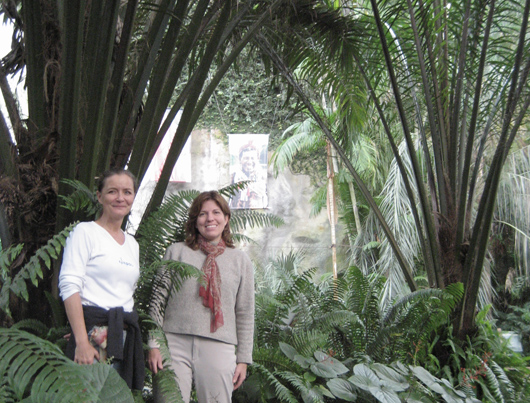Greenpeace ask Nestlé to give rainforests a break
02.04.10
This Easter Greenpeace are campaigning to give the rainforests and orangutans of Indonesia a break by not buying palm oil from destroyed forests.
Palm oil plantations are one of the biggest threats to the diverse and ancient forests of Asia. Coinciding with the massive surge in chocolate sales at this time of year Greenpeace's concerted social media effort to bring unsustainable palm oil to the front of our minds has been circulated round the internet at full speed.
Nestlé's slogan "good food, good life" would seem to not apply to rainforests, but they have responded to the allegations made by Greenpeace in a brief press release. "Nestlé recently undertook a detailed review of its supply chain to establish the source of its palm oil supplies and we have made a commitment to using only 'Certified Sustainable Palm Oil' by 2015, when sufficient quantities should be available."
2015 is a long way away. Do the forests have that long? There are precedents from other companies that it is possible to get rid of unsustainable palm oil in much quicker time-scales. But there is certainly room for some quicker manoeuvering. Historically, sales of sustainable palm oil have always lagged way behind production. Simply speaking manufacturers were not willing to put their hands in their pockets and pay the extra (tiny) surplus for it. This is coupled with the fact many companies would buy green certificates, that would essentially offset sustainable production but not necessarily mean the oil they used was itself certified. This situation seems to be changing with better segregation in the supply chain and may have helped contribute to the latest news from 2010 that about 98 per cent of the 120,000 metric tons of sustainable oil produced in January was sold.
Watch the powerful Greenpeace video that started it all on You Tube. Warning! Contains graphic images.

Two of the Asian rainforests biggest champions pictured beneath the Oil Palms at
Cornwall's Eden Project in late 2009. Lone Dröscher Nielsen (left) is the founder of the Nyaru
Menteng Orangutan Rehabilitation Project in Central Kalimantan and Michelle Desilets is the founder of Orangutan Land Trust and Borneo Orangutan Survival, UK.
Interview with Lone and Michelle coming soon to Plant Talk.
Related links:
Asia: BBC documentary reveals the increasing problem with palm oil
23.02.10
 Last night the BBC's Panorama programme threw fresh light on the growing palm oil crisis in Asia. The undercover film crew, led by reporter Raphael Rowe, discovered evidence of palm oil companies deforesting and planting plantations on protected areas.
Last night the BBC's Panorama programme threw fresh light on the growing palm oil crisis in Asia. The undercover film crew, led by reporter Raphael Rowe, discovered evidence of palm oil companies deforesting and planting plantations on protected areas.
Indonesia: Greenpeace sets up base camp in rainforest
30.10.09
 Greenpeace announced on October 27th that it has set up base in the heart of the Indonesian rainforest and will remain there for several weeks in order to bring urgent attention to the role that deforestation plays in driving dangerous climate change, a critical issue to be addressed at the UN Copenhagen Climate Summit in December.
Greenpeace announced on October 27th that it has set up base in the heart of the Indonesian rainforest and will remain there for several weeks in order to bring urgent attention to the role that deforestation plays in driving dangerous climate change, a critical issue to be addressed at the UN Copenhagen Climate Summit in December.
30.09.09
 Daniel Beltra's award winning photographs from the Amazon, Congo, and Indonesia show us the beauty and fragility of the world's rainforests.
Daniel Beltra's award winning photographs from the Amazon, Congo, and Indonesia show us the beauty and fragility of the world's rainforests.
Chocolate and cosmetic brands stand up against palm oil
18.08.09
![]() Cadbury's New Zealand follow Lush Cosmetics by eradicating palm oil from their products.
Cadbury's New Zealand follow Lush Cosmetics by eradicating palm oil from their products.
08.08.09
![]() World Agroforestry Centre (ICRAF) scientists have published data on the storage of carbon in palm oil plantations.
World Agroforestry Centre (ICRAF) scientists have published data on the storage of carbon in palm oil plantations.
Sustainable Palm Oil gets boost in China
25.07.09
 Major China-based producers and users of palm oil have announced they intend to provide more support for sustainable palm oil. This is seen as an important boost for efforts to halt tropical deforestation, as well as an incentive for the UK to up its game on sourcing sustainable palm oil.
Major China-based producers and users of palm oil have announced they intend to provide more support for sustainable palm oil. This is seen as an important boost for efforts to halt tropical deforestation, as well as an incentive for the UK to up its game on sourcing sustainable palm oil.